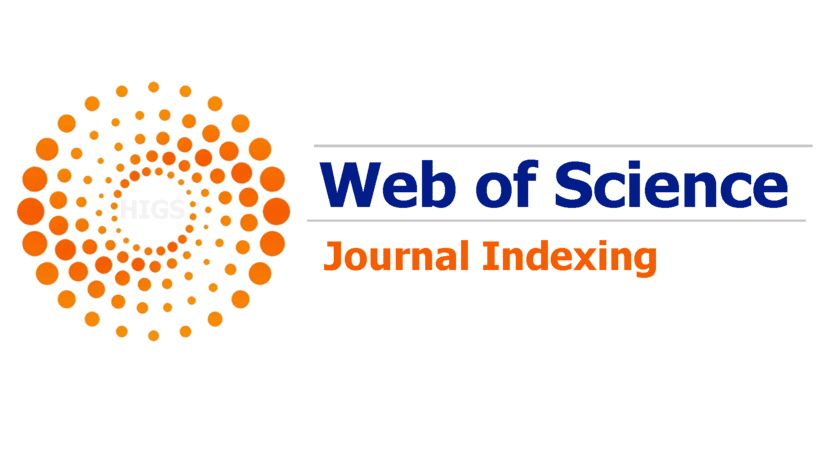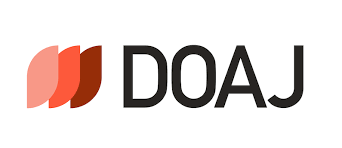Submissões
Condições para submissão
Como parte do processo de submissão, os autores são obrigados a verificar a conformidade da submissão em relação a todos os itens listados a seguir. As submissões que não estiverem de acordo com as normas serão devolvidas aos autores.- OBRIGATÓRIO: para que a submissão SEJA ACEITA, é ESSENCIAL que o nome, e-mail e filiação de TODOS os autores tenham sido cadastrados no sistema (metadados) pelo autor responsável para que TODOS recebam notificações durante o processo de submissão. Caso essa condição NÃO seja atendida, a submissão será CANCELADA, devendo o MS ser reenviado. Apenas serão aceitas as submissões em inglês.
- Anexar Carta de Apresentação, certificando a relevância dos resultados apresentados, bem como sua adequação ao escopo do BIP; e declarando que o MS é original, não foi e não será submetido a outro periódico enquanto estiver sendo avaliado pelo Comitê Editorial do Instituto de Pesca (CEIP). Incluir menção sobre o uso de Inteligência Artificial (IA) e uma lista de três potenciais revisores (Nome Instituição e e-mail), de preferência estrangeiros.
- Anexar o Certificado de tradução realizada por empresa especializada ou por profissional que comprove proficiência na língua inglesa (para autores não nativos da língua inglesa).
- Anexar o Certificado do Comitê de Ética em Experimentação Animal e/ou Comitê de Ética em Pesquisa com Seres Humanos, quando aplicável.
- Anexar arquivo PDF: com texto completo, identificação do autor (nome completo, afiliação, e-mail, registro no ORCID), tabelas e figuras incluídas.
- Em arquivo PDF, informar nome completo, filiação, e-mail e número de inscrição ORCID de TODOS os autores. Se você não tiver esse número, pode obtê-lo em orcid.org.
-
Certifique-se de que os nomes das instituições (filiações) sejam apresentados na íntegra no idioma original da instituição (até três níveis hierárquicos). Este procedimento é necessário para garantir uma boa indexação; o endereço completo de todos os autores é fundamental.
Figuras e tabelas DEVEM ser apresentadas ao longo do texto, não ao final. - As tabelas não devem exceder 16 cm de largura e uma página de comprimento (incluindo título e legenda).
- Verificar a formatação da apresentação das referências bibliográficas, de acordo com as normas apresentadas nas Diretrizes para Autores. O DOI das referências deve ser informado quando houver.
- Se o artigo for aprovado, o valor da taxa de publicação é de US$ 50 por página final (PDF) para autores estrangeiros e R$ 100 para autores vinculados a instituições brasileiras.
Artigo científico
Trabalho resultante de pesquisa científica com dados originais obtidos de forma planejada, com base em métodos cientificamente aceitos, rigorosamente controlados e com planejamento estatístico adequado, que possam ser replicados e generalizados. A discussão deve ser criteriosa, com base científica sólida; não deve se limitar a comparações dos resultados com a literatura, e sim apresentar inferências, hipóteses e argumentação sobre o que foi estudado.
Sessões obrigatórias: Título, Autor(es), Endereços institucionais (completos) e eletrônicos de todos os autores, número de registro no ORCID, Abstract, Keywords, Introdução, Material e Métodos, Resultados, Discussão, Conclusões, Agradecimentos (opcional), Referências. Deve conter, no máximo, 25 páginas (incluindo tabelas, figuras e referências) e no máximo seis autores. Excepcionalmente, serão aceitos até oito autores, desde que a participação de todos na pesquisa seja devidamente justificada. Alteração de autoria, inclusão de novos autores ou exclusão de autores após a submissão do manuscrito não serão permitidas.
Artigo de Revisão
Apresenta análises aprofundadas de determinado tópico ou tema de estudo. Apenas artigos de revisão crítica serão considerados. Não devem consistir apenas em um resumo dos dados publicados (revisão da literatura). Devem apresentar uma avaliação crítica dos dados, o status do conhecimento e as pesquisas necessárias para avançar no conhecimento do assunto. O formato e a extensão dos artigos de revisão são mais flexíveis do que os de um artigo científico. O artigo de revisão deve apresentar: Título, Autor(es), Endereços institucionais (completos) e eletrônicos de todos os autores, bem como o registro no ORCID, Abstract e Keywords, Resumo, Palavras-chave, Introdução, Discussão, Agradecimentos (opcional) e Referências. A metodologia deve informar de que modo os dados foram obtidos e como foi realizada a análise (foco).
Nota científica
Artigo curto com resultado inédito de pesquisa científica cuja divulgação imediata se justifica. Incluídas nesta categoria estão observações significativas ou descobertas excepcionais de projetos contínuos que justificam a publicação rápida (descrição de uma técnica, registro da descoberta de uma espécie, registro de parasitas em espécies de determinado local e outras situações únicas). Deve ter o mesmo rigor de um artigo científico e conter dados suficientes para comprovar que a pesquisa alcançou resultados confiáveis e significativos. Comunicações curtas não devem ser usadas para resultados preliminares. A Nota Científica deve conter: Título em inglês, Autor(es), Endereços institucionais (completos) e eletrônicos de todos os autores, bem como o registro no ORCID, Abstract e Keywords, Resumo, Palavras-chave, Introdução, Material e Métodos, Resultados, Discussão (nesse caso, Resultados e Discussão podem ser apresentados juntos), Conclusões, Agradecimentos (opcional), Referências. Deve conter no máximo 15 páginas (incluindo tabelas, figuras e referências) e no máximo quatro autores.









